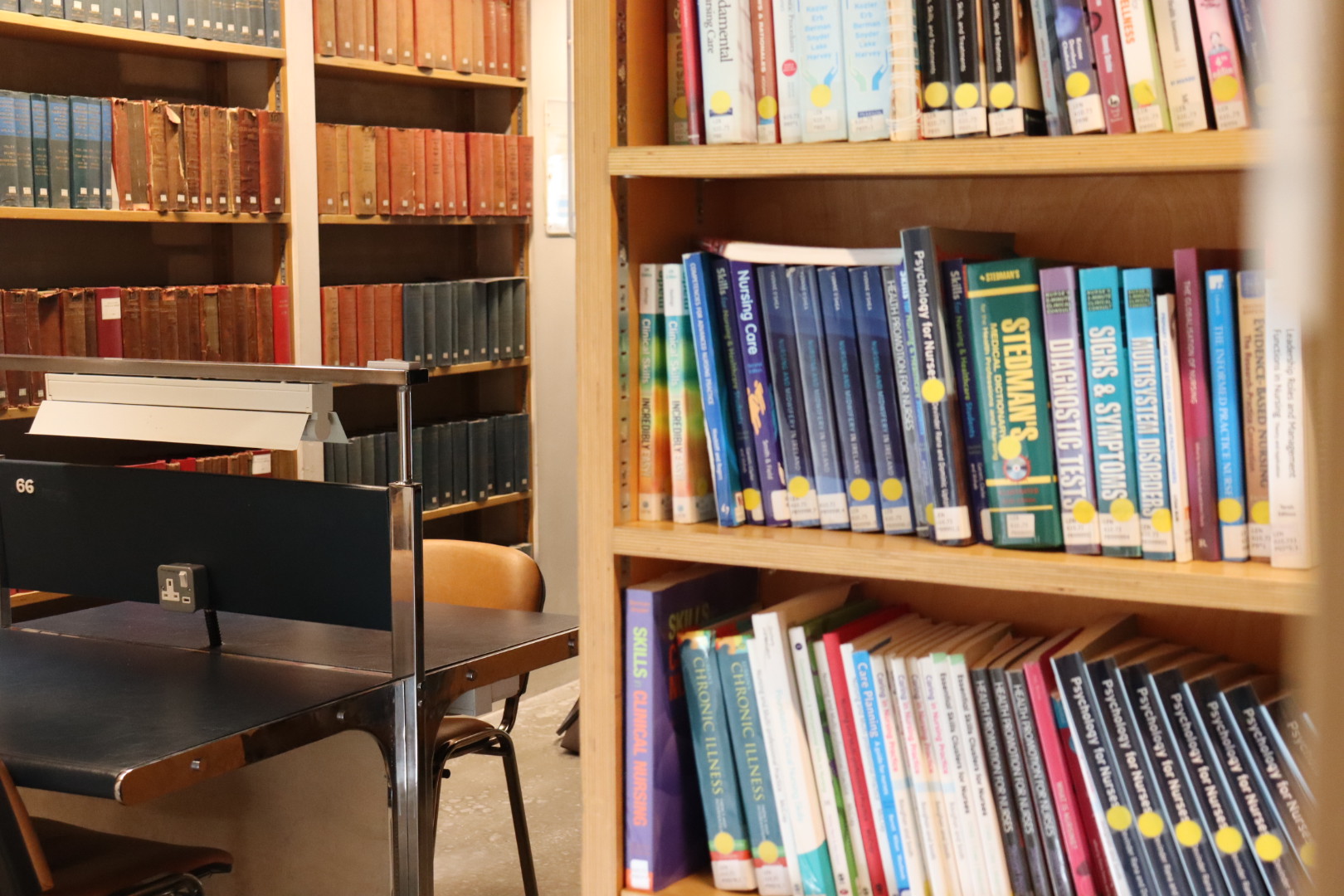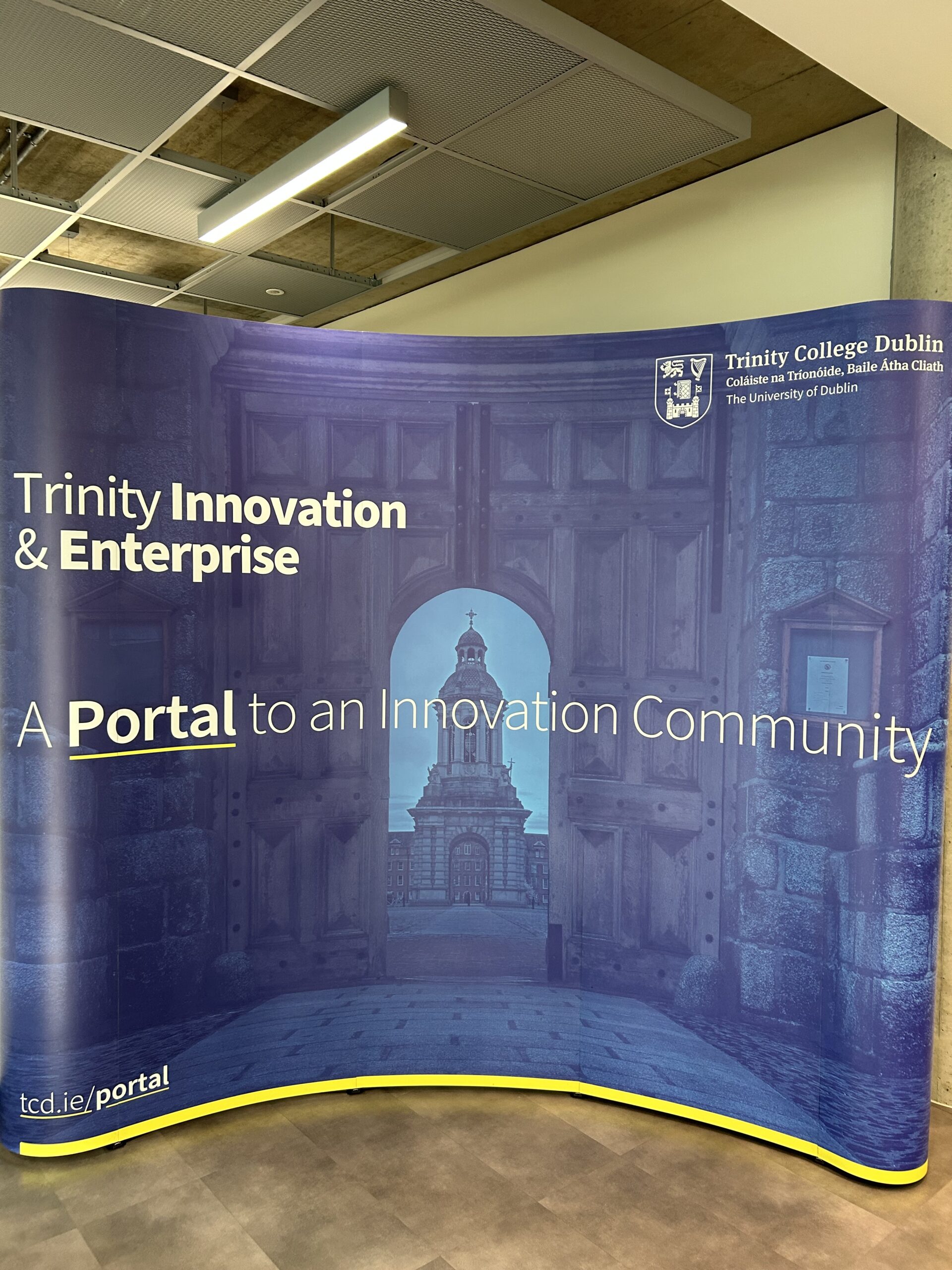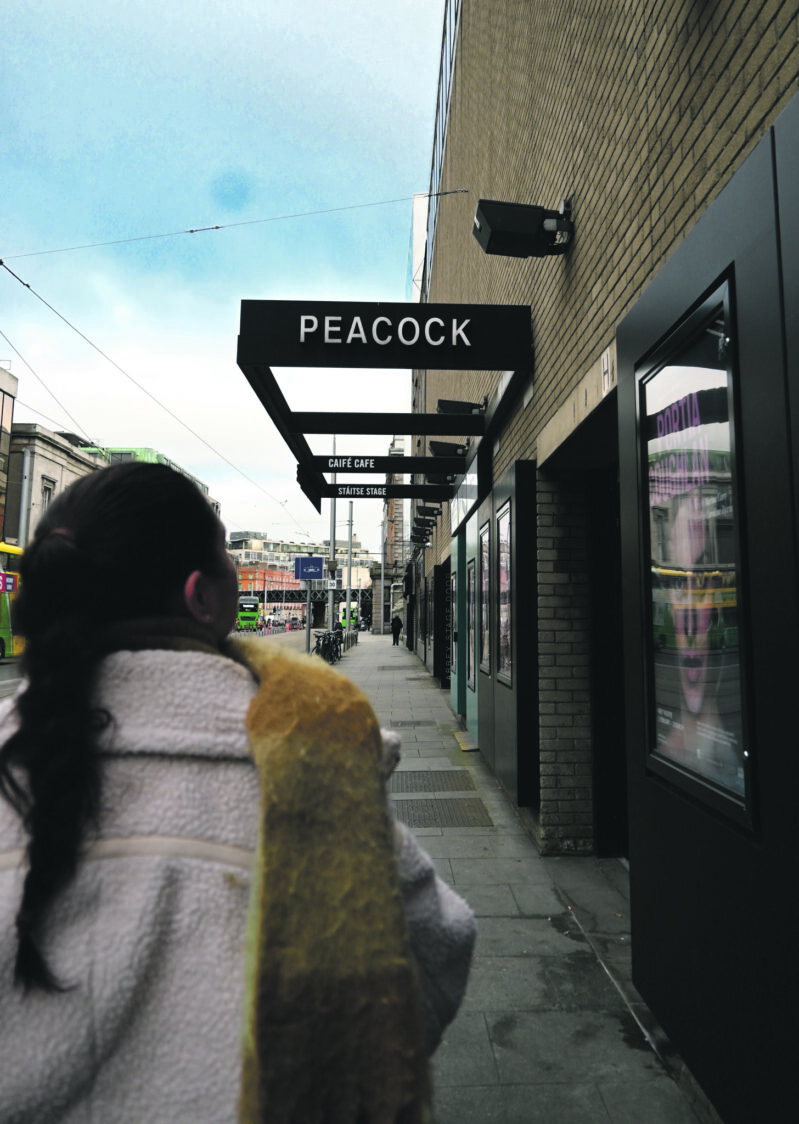
In recent years, there has been a major push to uplift women’s voices across the culture sector, starting with Waking the Feminists and blossoming into a strong cross-sector movement. During this time, women have produced extraordinary work in the past few years, from theatrical masterpieces to miniseries to compelling autobiographies. Many of these have focused on the intersection of their identities and how they shape the way every woman sees themselves. Looking to dig into what this means for the women making waves in Irish culture, I spoke to several prominent figures about their experiences and hopes for the future.
Niamh Ní Chonchubhair came to Axis Ballymun 15 years ago because “Axis is one of the few areas where [theatre and the Irish language] intersect quite naturally”. Since then, she has found her calling in advocating for the arts as a tool for social change. With the venue running a wide range of projects from festivals to exhibitions, Ní Chonchubhair informed me with a laugh that “it feels like I’ve had several different roles.”
Even though Axis works with the community, Ní Chonchubhair emphasised that they “don’t do outreach” – “nobody needs us to ‘reach out’ to them”. Instead, they offer opportunities for artists from different backgrounds to work with them. “Being around women whose life experiences differ from mine” and working on the Hijabi Monologues project demonstrated to Ní Chonchubhair just how vibrant the Ballymun community can be.
While Ní Chonchubhair has always considered herself a feminist and has “grown up around strong women and men who delight in uplifting strong women”, she recognises is now “in a privileged position, a leadership position, where [she has] resources to share”. She added, “I don’t know if 10 years ago I would have had a perception beyond my own, and I’m grateful to the women who challenge me.”
She is also committed to supporting disabled artists, including people with invisible disabilities – as Ní Chonchubhair pointed out, “two thirds of disabilities are invisible, many people still think of it as purely physical, but it’s so much more than that”. She spoke passionately about how “these words have to mean something – they can’t just be a policy on our website”.
After hearing about Axis’ community-focused work, I wanted to see if the same transferred to digital media and immediately thought of Mamobo Ogoro. Gorm Media, the company she founded, is an “impact-focused digital media enterprise [whose] mission is to allow young people to have a voice in social issues”.
“I was hitting a lull with my PhD. My research is around media representations of multicultural Ireland and I felt like I was stuck in a bubble in the university world and my research wasn’t having enough impact”, Ogoro explained. Her research became particularly relevant in 2020 as societal awareness as at an all-time high following the murder of George Floyd and she decided to found Gorm Media.
The reception to her work has been largely positive. “I think because of the ‘hype’ around diversity and inclusion my experience has been a positive one … if I were to have done this five years ago, it would have been doors closed [for me].” She adds that she is extremely grateful for the support, including drawing the attention of Humanity in Action in the form of the Landecker Democracy Fellowship, an international fellowship designed to encourage positive dialogue and understanding to tackle growing rates of discrimination.
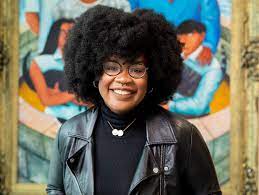
Gorm Media founder Mamobo Ogoro
Having been honoured at the inaugural Black and Irish Awards for her digital activism, Ogoro and her company will be ones to watch this year. “I have so many ideas for digital-based and arts-based projects that really highlight these voices and create a safe space for people to have open discourse on social issues in order to build that common ground.”
Having spoken to two people focused on grassroots movements, I decided to investigate cultural institutions. Director of the Irish Museum of Modern Art (IMMA) Annie Fletcher speaks to the misogyny that runs rampant in visual arts, recalling how the industry felt “quite macho and forbidding” when she was finding her feet.
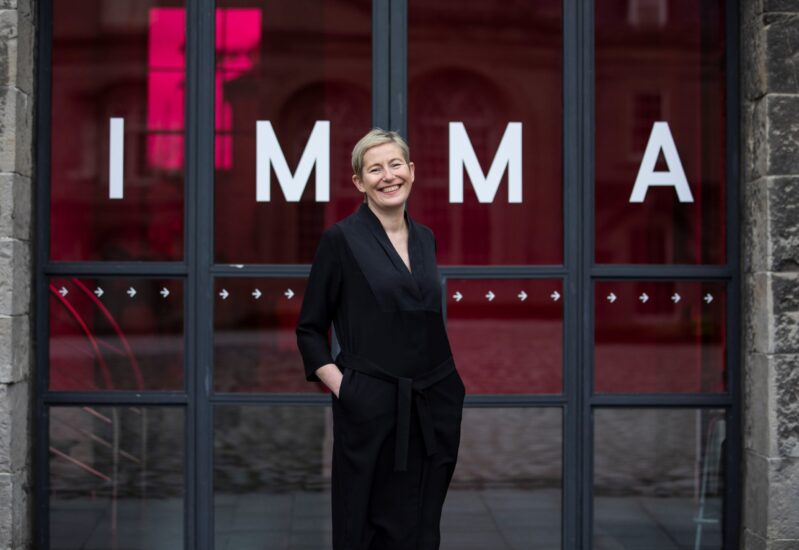
Annie Fletcher
After graduating from Trinity, Fletcher found a job with the Douglas Hyde gallery, but found the environment difficult to navigate as a young woman, and eventually moved to Amsterdam. “It was challenging in the 90s as a young woman to go into organised spaces”, she remarked.
As the head of a major Irish museum, she is delighted to now see so many women in positions of power, however, “the big question is where is the structural change?”, she asked. Fletcher is adamant that without structural changes within these institutions where women’s voices are actively listened to, the systemic change that needs to happen won’t come. “We can programme diversity, but until that changes it’s just cosmetic.” For that reason, she tries to highlight women’s issues in her work wherever possible and advocate for women in these spaces. “There’s something great about women occupying these positions but not being afraid of criticism”, she tells me.
Fletcher made it very clear to me that for her, one of the most important things to demonstrate to women hoping to engage with the art world is that they should never let their voices go unheard. “You should be agile and confident but don’t lose your voice – refuse to go away.” For women competing for high positions, “be passionate but not naive, fight for those jobs – you deserve those jobs and the money just as much as anyone else.”
These questions become even more relevant when ensuring the inclusion of trans women. Philippa Ryder has been involved with trans and LGBTQ+ equality groups for many years and is the current director of Dublin Pride and COO of Under the Rainbow. Her book, My Name is Philippa, detailing her experiences growing up trans in Dublin in the 60s and 70s, was written “to help other people”, she explained. “There’s so much anti-trans stuff at the moment that I wanted to show that people could survive the journey and be successful.”
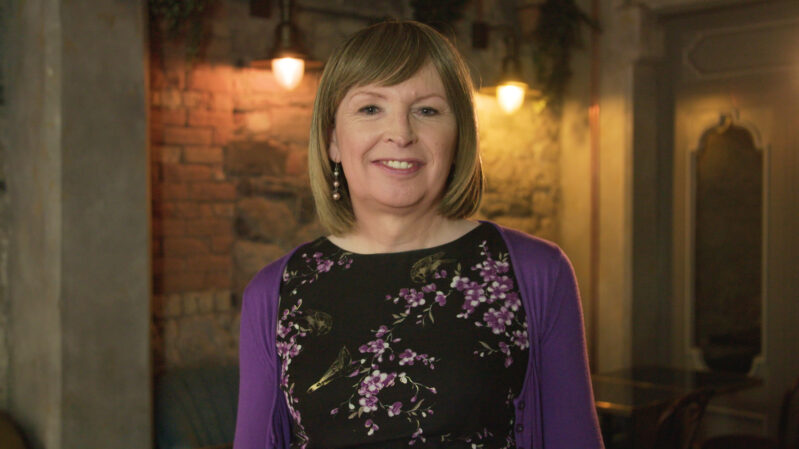
Director of Dublin Pride Philippa Ryder
The writing process was very emotional, according to Ryder – “every time I wrote a paragraph that brought back a big memory or an important incident, I had tears in my eyes and I’d be so proud of myself for having survived all these challenges”. With Ryder being heavily involved in organisations that promote acceptance and pride, for her to tell her story and engage with the writing process in an authentic way serves as a huge inspiration for young queer and trans people.
Although she was fortunate enough to transition while in a stable place in her life and supported by loved ones, Ryder understands that many young trans people are not so lucky. “I was lucky, in a way, to transition later in life in that I had a secure job, a stable marriage, and an amazing daughter, but others who transition early in life still have to find jobs and enter relationships.”
The highlight of the writing process for Ryder was her book launch. Surrounded by 50 people in the book shop who came out to support her, “it was almost like a bookend to my transition and now I’m just going to continue on”, she explained. “The launch of the book … and the reaction to the book has just been the highlight of my life to date.” Her advice for women and trans people entering the industry is to “keep pushing [people], especially men, to make them more aware. It should be 50-50 on any board, in any position.”
Armed with the new information from Ní Chonchubhair, Ogoro, Fletcher and Ryder, I wanted to look at how this change has manifested itself within Trinity. As an educational institution, the way women are treated by the College prepares them for the world of work. In a historical year for the college, students now have two major female role models in Provost Linda Doyle and current president of the Trinity College Dublin Students’ Union (TCDSU) Leah Keogh.
In a zoom interview, Keogh observed that since starting the role, she found that there is an additional layer of media scrutiny for women. “There’s an additional layer of scepticism, I’ve found, in that you get called up on things that your male predecessors might not have, and that’s become really evident to me in my role.”
Keogh also explained that she feels a certain amount of impostor syndrome: her mother completed the first access course in Trinity, paving the way for her to attend College. Having a TCDSU president who comes from a working-class background is another major step forward, she believes. “I don’t think that previously, the union leadership has reflected the students it’s representing, so to have someone with a different accent, I’ve heard, has helped.”
Similar to Keogh, Provost Linda Doyle noted that “the symbol of [her] being [provost] does matter to lots of people,” but added that, in her view, “what will matter more is whether I do a good job no matter what gender I am”.
“You should always pursue what it is that you love and that motivates you, and you shouldn’t be stopping to consider if it’s appropriate for your gender. I would say to a lot of women, put your hand up and be a leader, there are often more opportunities than people who want to lead in them.”
For female students and budding arts workers, the insights and perspectives of these powerful cultural voices inspire confidence about the opportunities increasingly becoming available to women in the arts world and beyond. From grassroots community projects to prominent institutions, change is sweeping the sector for the better. It’s not perfect and we still have a long way to go before true intersectional equality is achieved, but it truly feels as though a path is being paved for the better.

